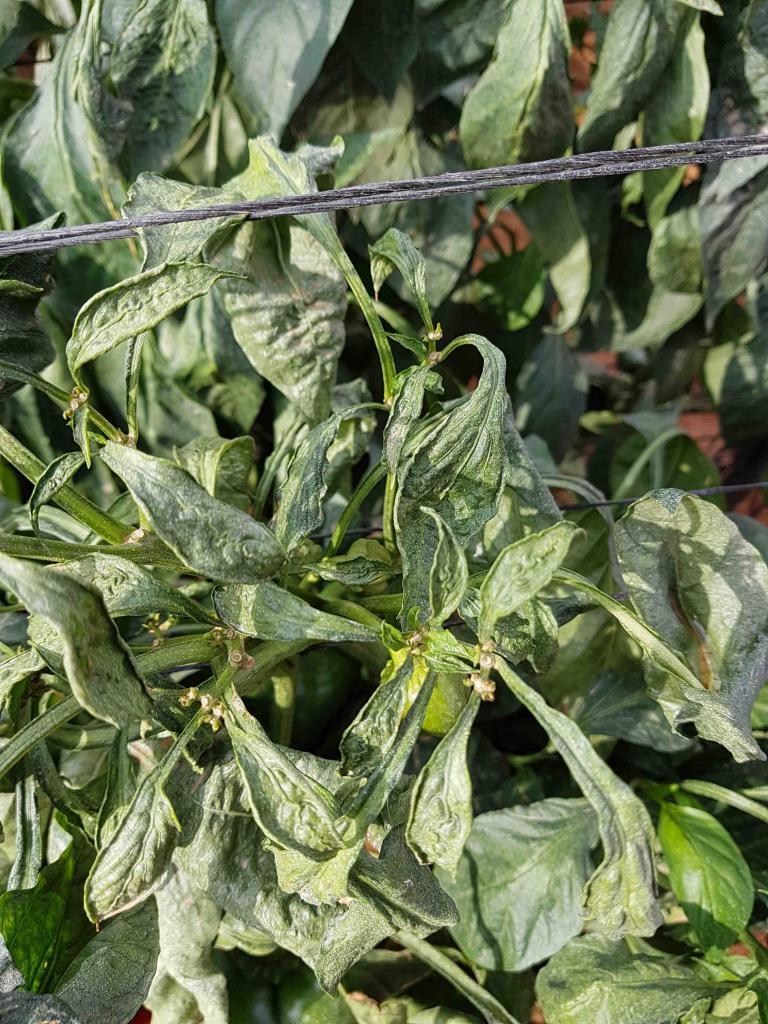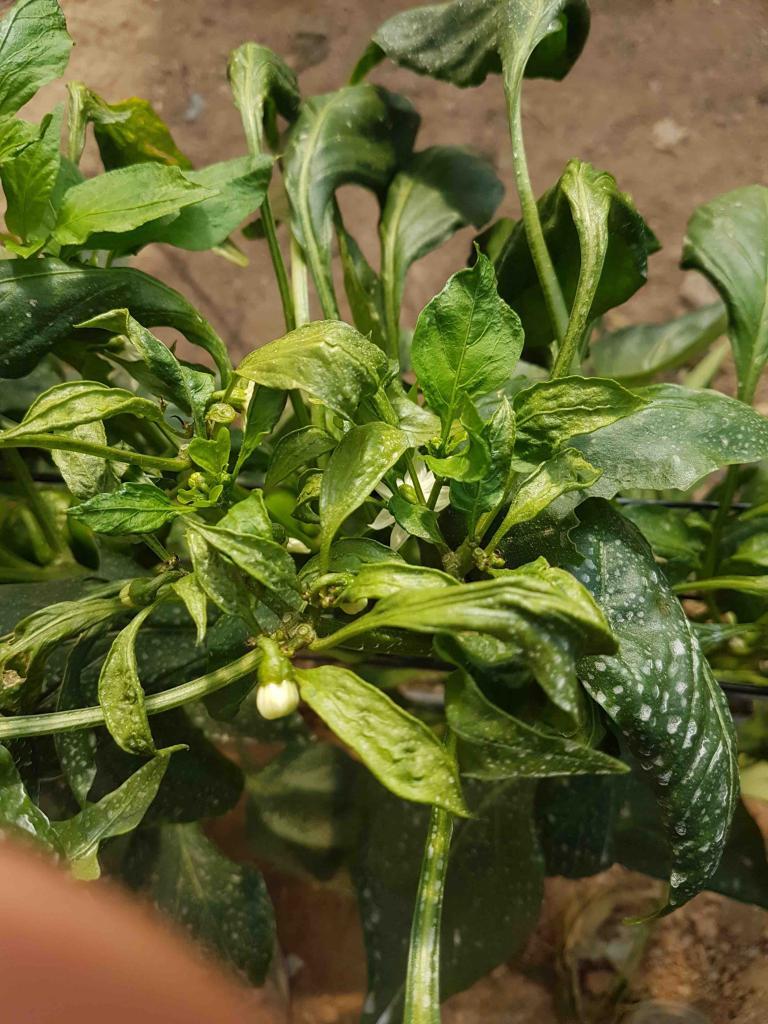Broad Mites
Eggplants, cucumbers, squash, watermelon, papaya, strawberry, cannabis, peppers, basil, grapes, citrus, tomatoes, and potatoes
Broad mites are microscopic mites (so small you need a hand lens to see them) found on many crops worldwide. Broad mites are one of the most injurious mite species.
During feeding, toxic compounds get injected into the plant tissues. Leaves exhibit various symptoms such as downward curling with a bright waxy-like texture. When left untreated, the plant will stop developing and appear dwarfed. Feeding causes brown and cracked scarred tissue on fruits.
Populations of broad mites tend to be most severe in warm and humid conditions such as those found in greenhouses.
Monitoring: It doesn’t take long for broad mites to inflict critical damage to crops, from which there is no return. Monitor your field on a weekly basis. Search for signs of cupping and curling of leaves in order to catch infestation in its initial phase.
The following insecticides are used in one or more parts of the world: abamectin, emamectin benzoate,diafenthiuron, cyflumetofen, and spiromesifen
sulfur-based products
*Names marked in red are considered to be highly poisonous to beneficial insects.
*Names marked in green are considered to be organic and IPM (integrated pest management) compatible.
Image Gallery

